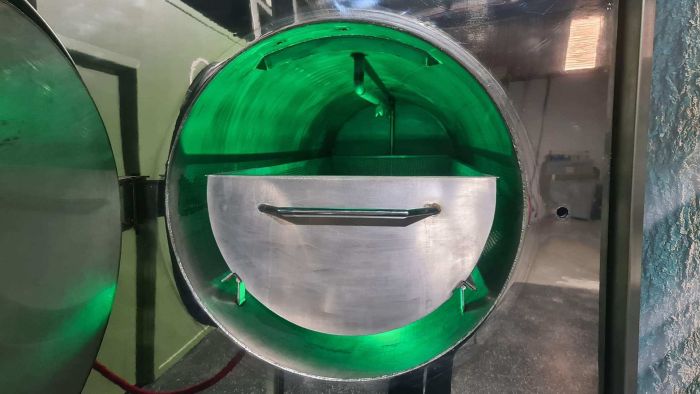When someone dies, funeral directors will usually give loved ones two options for the body: a cremation or a burial.
But the growing demand for sustainability in life – and in death – has seen a rise in eco-alternatives to typical funeral practices across the globe.
Some Queenslanders are even opting to have their bodies reduced to liquid and dust as part of a new technique with green credentials.
The Gentle Way was created by Bowen funeral director Jeff Boyle when a client refused to choose burial or cremation when she was pre-planning her funeral arrangements.
“She turned around, she said, ‘Well get on your horses, and go and find something better because I’m not dead yet, neither are you’,” Mr Boyle said.
He then spent two years researching and developing a new body disposal method that reduces a person’s body to dust and liquid.
“When we get the body, it is placed into what we call a water-soluble body bag,” Mr Boyle said.
The body is then placed in a stainless steel steel basket which is then placed in a stainless steel cylinder.
The cylinder is then partially filled with highly alkaline, solar-heated rainwater and the body is left to break down over about 12 hours.
“Then we add 300 litres of water, which is below the body, the body’s not underwater, it’s basically half up on the body,” Mr Boyle said.
“It softens the skin, and then the skin just basically breaks apart.”
He said it’s similar to when the skin on your hands goes wrinkly and saggy after washing up dishes in soapy water.
At the end of the process, the bones are crushed up and given to the loved ones family, much like in cremation.
And the liquid remains are filtered down to about a quarter of a cup of “DNA-rich” liquid.
Mr Boyle said the liquid remains would probably be good on a garden but, by law, it can’t just be handed over, so families choose a pot plant and it’s poured in there.
After opening to the public earlier this year, Mr Boyle said it has been massively popular.
“We cannot keep up,” he said.
“It takes 10 to 12 hours per cycle and because of that, you can only really get one through every day.”
Mr Boyle said people have been keen on the method because of its relatively small environmental impact – with the system using solar power, rainwater and leaving very little in the way of physical remains.
“I’m not a greeny, but this thing doesn’t hurt the environment at all,” Mr Boyle said.
Credit: Triple J The Hack


